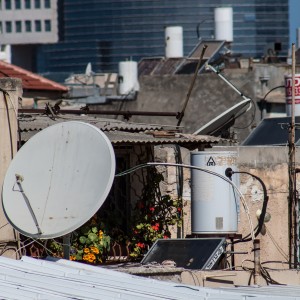The Stream, April 15: International Climate Panel Will Look At 1.5C Temperature Rise
The Global Rundown
A global panel of scientists will contribute to a new report analyzing the effects of a 1.5-degree-Celsius increase in temperatures. A new online tools shows how sea level rise will affect Australia. More than 1,000 farmers in India’s drought-hit Marathwada region committed suicide last year. A majority of California residents still view the state’s drought as “extremely serious”. Experts urged leaders in the Philippines to address water management issues to avoid future shortages. Floods in Saudi Arabia this week turned deadly.
“Before the Paris meeting governments were focusing on [a rise of] 2C. The latest assessment by the IPCC showed that some serious risks to corals and sea-level rise emerge at 1.5C. But there was not much available [science] on these topics. There is a lot we need to find out about 1.5C. We are ready to embark on this.” –Hoesung Lee, chair of the United Nations Intergovernmental Panel on Climate Change, on a special report the panel is now working on to assess the effects of a global temperature increase of 1.5 degrees Celsius. Scientists from around the world will contribute to the report. (Guardian)
By The Numbers
1,100 suicides Number reported last year in India’s Marathwada region, where consecutive years of drought have created losses for many farmers. Aljazeera
18 people Number killed in heavy rains and flooding in Saudi Arabia this week, while more than 900 people were rescued from the floods. Reuters
62 percent Respondents in a California poll who say the state’s water shortage is “extremely serious”. Many plan to continue conserving water. The Mercury News
Science, Studies, And Reports
A new online tool, called Coastal Risk Australia, allows residents of Australia to see how rising sea levels could affect their cities and homes by the end of the century. The atlas uses Google maps combined with projections of future sea levels from the Intergovernmental Panel on Climate Change. Guardian
On The Radar
The global El Nino weather pattern has caused severe droughts across the Pacific in the past year, but water problems are far from over in countries like the Philippines. Water and development experts urged government leaders there to improve water management policies, particularly relating to groundwater, in order to avoid future water shortages. Philippine Daily Enquirer
A news correspondent for Circle of Blue based out of Hawaii. She writes The Stream, Circle of Blue’s daily digest of international water news trends. Her interests include food security, ecology and the Great Lakes.
Contact Codi Kozacek





Leave a Reply
Want to join the discussion?Feel free to contribute!